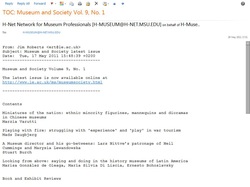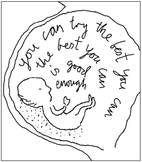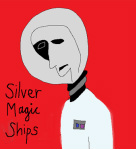
It is that "review process" that has failed. Remote Sensing is not primarily a journal concerned with climate change. Be that as it may, the three unidentified reviewers of the paper were well-published "senior scientists from renowned US universities". However, it now appears that all three "probably share some climate sceptic notions of the authors" (Wagner 2011: 2003). Wagner is at pains to stress that climate change scepticism is not in itself a reason to deny publication. Indeed, "minority views" make an important contribution to debate, ensuring that science progresses through argument and even controversy. Instead, what made the paper in question unacceptable was the fact that it "essentially ignored the scientific arguments of its opponents" (Wagner 2011: 2003). It was this "fundamental flaw" that was missed by the reviewers. Their failings and Wagner's own lack of oversight prompted the editor's resignation.
This affair is the latest in a series of cases in which the nature of academic peer review has come into question (Burch 2011b: 11). One such example concerns a paper I had published in the open access journal, Museum and Society (Burch 2011a). This was approved through the usual system of "double blind" review. However, following its publication the editor of the journal - Professor Richard Sandell of the University of Leicester - received complaints from fellow members of the board. This led Sandell to delete the article. I have since republished the work in its original form and supplied an introduction setting out the background to its "withdrawal" (Burch 2011a; Burch 2011b).
The Remote Sensing and Museum and Society cases differ in a number of respects. However, one thing that connects them is the protection granted to the "go-betweens", i.e. the peer reviewers. The identities of the people who forced my paper's removal are hidden. So too are the names of the three biased reviewers who saw to it that a "fundamentally flawed" piece of research appeared in Remote Sensing. Anonymity is central to the practice of peer review. Yet those who undermine this system should surely be identified and asked to account for their actions. They should have the courage and professionalism of Wolfgang Wagner - a man who deserves credit for "taking responsibility", admitting to a mistake and resigning for the sake of the academic system and its contribution to scholarship and to knowledge.
_________
References
Burch, Stuart (2011a) "A Museum Director and His Go-Betweens: Lars Nittve's Patronage of Neil Cummings and Marysia Lewandowska", Museum and Society, Vol. 9, No. 1, pp. 34-48, accessed 17 May 2011 at, http://www.le.ac.uk/ms/m&s/Issue%2025/burch.pdf
Burch, Stuart (2011b) "A Journal Editor and His Go-Betweens: Richard Sandell and the University of Leicester’s Museum and Society", uploaded 05/08 at http://www.stuartburch.com
Spencer, Roy W. & Braswell, William D. (2011) "On the Misdiagnosis of Surface Temperature Feedbacks from Variations in Earth’s Radiant Energy Balance", Remote Sensing, Vol. 3, No. 8, pp. 1603-1613, accessed 03/09/2011 at, http://www.mdpi.com/2072-4292/3/8/1603
Wagner, Wolfgang (2011) "Taking Responsibility on Publishing the Controversial Paper 'On the Misdiagnosis of Surface Temperature Feedbacks from Variations in Earth's Radiant Energy Balance' by Spencer and Braswell, Remote Sensing, 2011, Vol. 3, No. 8, pp. 1603-1613", Remote Sensing, Vol. 3, No. 9, pp. 2002-4, accessed 03/09/2011 at, http://www.mdpi.com/2072-4292/3/9/2002
___________
Supplemental
The peer review system is clearly a matter of widespread interest and concern, as can be seen from this recent newspaper article:
Colquhoun, David (2011) "Publish-or-perish: Peer review and the corruption of science", The Guardian, 05/09, accessed 06/09/2011 at, http://www.guardian.co.uk/science/2011/sep/05/publish-perish-peer-review-science





